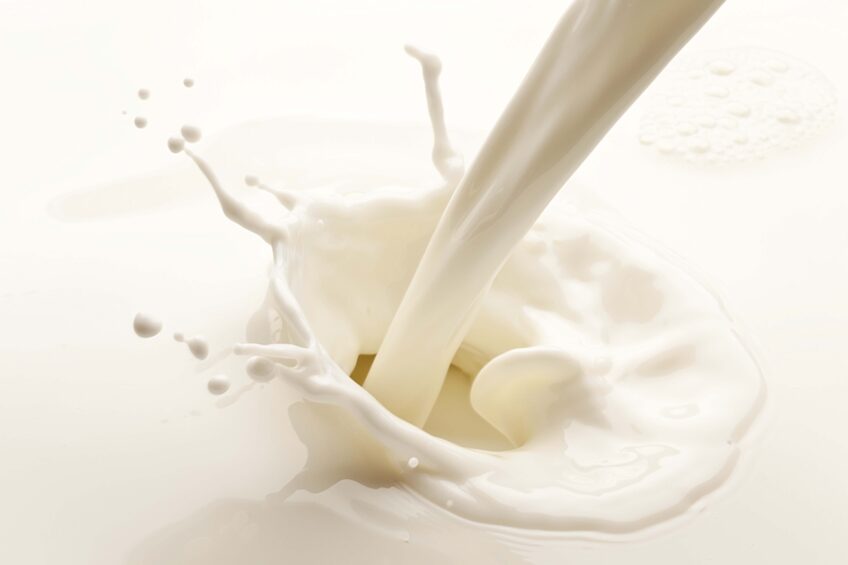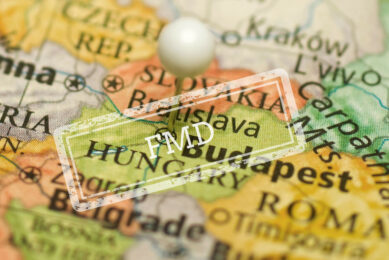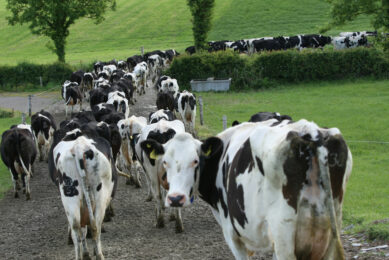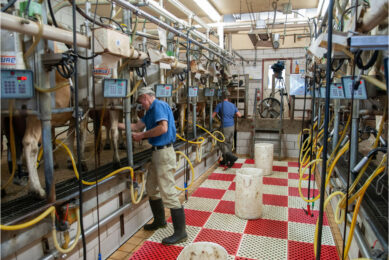Europe asks farmers to reduce milk supply

Dairy farmers in Northern Ireland will be asked to reduce their milk production for the first time in order to solve the problem of oversupply and low milk prices.
The request comes out of an emergency meeting of the Council of EU Agriculture Ministers in Brussels which announced measures yesterday (Monday) to try and halt the deepening of the agricultural crisis across Europe.
Reducing the milk supply is a measure that Fair Price Farming NI has constantly called for in Northern Ireland, but a move that both the Ulster Farmers Union and DARD have been against.
Compensation needed for farmers
Donacloney dairy farmer Charlie Weir, chairman of Fair Price Farming NI, said: “We have always maintained that a reduction in supply is the answer to the current crisis. Fair Price Farming NI feels vindicated that Commissioner Hogan is working toward a supply management initiative to solve the crisis as advocated by us. “However, it is early days and we need to see how this request from Europe is rolled out. “The larger dairy farmers need to embrace this if it is to work. If they aren’t willing to do that then the Commission must offer a financial incentive to compensate farmers for their reduced supply.
“I am told a high number of the Member States in the EU supported Hogan’s call for reduced supply. I cannot see the UK or indeed Irish governments using national financial reserves to pay us for reducing our supply so I hope, that with a strong support from other Member States, that the Commission pays for this temporary measure.”
The Ulster Farmers Union said last week that it along with other farming unions would consider the package announced in Brussels and would comment on them later. Using all the tools made available in the Common Agricultural Policy (CAP) the European Commission say it wants to support farmers while safeguarding the EU internal market. The Commission said it acknowledges the depth and duration of the current agricultural crisis as well as the considerable efforts made at Member State level to support farmers and is responding with a further meaningful package of measures.
EU farmers – short and long term measures
Farm Commissioner Hogan announced further measures on top of the €500 million support package from last September. He said: “In the interest of EU farmers, I am prepared to use all instruments that the legislators have put at our disposal, both as a short term and long term measure. “We must use the appropriate instruments and actions to enable farmers to be resilient in the face of volatility whilst providing immediate assistance to them. “Today’s response is a comprehensive one, taking on board as many of the proposals as can be done, within the legal and budgetary constraints that apply to all of us.
“I believe that this is a package of measures which, when taken with the full implementation of the September solidarity package, can have a material and positive impact on European agricultural markets and it should now be given the chance to succeed.”
Dairy sector production and supply, increased quantity ceilings
The Commission will activate, for a limited period of time, the possibility to enable producer organisations, interbranch organisations and cooperatives in the dairy sector to establish voluntary agreements on their production and supply. A statement from the Commission read: “This is an exceptional measure, which must also safeguard the EU internal market and was included by the legislators in the 2013 CAP reform but never used before. “The Commission will give its full consideration to a temporary acceptance of state aid that would allow Member States to provide to a maximum of €15,000 per farmer per year and no national ceiling would apply. “This can be done immediately and much more quickly than an increase in de minimis ceilings.”
The Commission will increase the quantity ceilings for skimmed milk powder and butter put into intervention from 109,000 tonnes and 60,000 tonnes respectively to 218, 000 tonnes and 100,000 tonnes.
Join 13,000+ subscribers
Subscribe to our newsletter to stay updated about all the need-to-know content in the dairy sector, two times a week.










